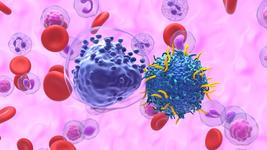Dosing Underway in World’s First in Vivo CRISPR Trial for Primary Hyperoxaluria
CMN Intelligence - The World’s Most Comprehensive Intelligence Platform for CRISPR-Genomic Medicine and Gene-Editing Clinical Development
Providing market intelligence, data infrastructure, analytics, and reporting services for the global gene-editing sector. Read more...
In a press release published last week, Shanghai-headquartered YolTech Therapeutics disclosed that the first two patients have been dosed in an Investigator-Initiated Trial of YOLT-203. The candidate is being developed as a one-time curative treatment for primary hyperoxaluria type 1 (PH1).
PH1 belongs to a group of inherited metabolic disorders that are characterised by an excessive, harmful build-up of oxalate in the kidney and other organs. PH1 debuts in childhood, and most patients experience kidney failure and require intensive haemodialysis as a bridge to a dual liver/kidney transplantation.
YOLT-203 inactivates key enzyme involved in oxalate production
YOLT-203 is an in vivo gene-editing therapeutic candidate developed using YolTech's proprietary YolCas12™ system. YOLT-203 consists of the YolCas12 nuclease and target-specific guide RNA and is delivered via lipid nanoparticles that traffic to the liver.
Once inside liver cells, YOLT-203 targets the HAO1 gene to deactivate glycolate oxidase (GO), an enzyme that plays a key role in oxalate production. By targeting HAO1 instead of AGXT, YOLT-203 has the potential to treat more patients than targeting AGXT, since PH1 can arise through many different mutations in AGXT.
In pre-clinical studies, YOLT-203 demonstrated high gene-editing activity in prokaryotic and eukaryotic cells, as well as high-efficiency in vivo editing via LNP-mRNA delivery in mice and non-human primates.
Primary hyperoxaluria (PH)
Primary hyperoxaluria (PH) is a group of rare genetic metabolic diseases that are characterised by excessive production of oxalate by the liver and subsequent build-up of oxalate in the kidneys and other organs. PH is inherited in an autosomal recessive pattern, and affected individuals suffer a deficiency in a specific enzyme that normally prevents oxalate accumulation.
Three main disease subtypes, I, II, and III, have been described, and these arise through mutations in distinct enzymes. PH type I (PH1) is the most prevalent and severe subtype, and is estimated to affect 1-3 individuals per 1,000,000 people in the general population (www.raredisease.org). PH1 arises through mutations in the AGXT gene, which encodes the alanine-glyoxylate aminotransferase (AGT) enzyme. AGT catalyses the conversion of alanine and glyoxylate to pyruvate and glycine, respectively. When active AGT is absent in the peroxisome, i.e., in PH1, glyoxylate is oxidised to oxalate in the cytosol, leading to high levels of oxalate in the blood and urine, which can result in kidney stones, kidney failure, and other complications.
PH is incurable and current treatment approaches focus on symptom relief and preventing oxalate accumulation in the kidneys and blood vessels. Oxalate accumulation is managed through a combination of high fluid intake and the use of prescription siRNA-based medicines designed to indirectly reduce oxalate production by targeting enzymes involved in the oxalate biosynthesis pathway.
Read more about PH here.
The early Phase 1 trial of YOLT-203, sponsored by RenJi Hospital (Shanghai), aims to evaluate the safety and tolerability of YOLT-203 in Chinese individuals with PH1, and to preliminarily assess the impact of a single dose of YOLT-203 on plasma oxalate levels. The trial marks the first clinical application of in vivo gene editing as a potential curative treatment for PH1. A total of seven participants are estimated to be enroled in the trial, of which the first adult was dosed on 5th Aug 2024 and the first child was dosed on 20th Aug 2024.
For further details, see the official press release here.
We will continue to update you on the gene-editing clinical trials as new details emerge. In the meantime, you can find all of our coverage on clinical-stage gene editing programmes here.
For a complete overview of current gene editing clinical trials, check out CRISPR Medicine News' Clinical Trials Database.
This article was originally published on 28th August 2024. In the original publication, the AGXT gene was incorrectly stated as the target for YOLT-203. The target of YOLT-203 is the HAO1 gene. The article was updated to include this correction on 26th February 2025.
To get more CRISPR Medicine News delivered to your inbox, sign up to the free weekly CMN Newsletter here.
Tags
ArticleNewsClinical News UpdatesPrimary hyperoxaluria (PH)Cas12YolTech Therapeutics
CLINICAL TRIALS
Sponsors:
Base Therapeutics (Shanghai) Co., Ltd.
Sponsors:
Base Therapeutics (Shanghai) Co., Ltd.







